第20章 CHAPTER IX(3)
That would be it. Remembering all the waste of fear, how he would stand and SMILE!
He was smiling himself, the golden gorse about him already losing its flame in the light returning mist-wraiths closing again over it, when I heard a sound far away and high up the moor. It sounded like the playing of a piper.
He did not seem to notice it.
"We shall be shut in again," he said. "How mysterious it is, this opening and closing! I like it more than anything else. Let us sit down, Ysobel."
He spread the plaid we had brought to sit on, and laid on it the little strapped basket Jean had made ready for us. He shook the mist drops from our own plaids, and as I was about to sit down I stopped a moment to listen.
"That is a tune I never heard on the pipes before," I said. "What is a piper doing out on the moor so early?"
He listened also. "It must be far away. I don't hear it," he said. "Perhaps it is a bird whistling."
"It is far away," I answered, "but it is not a bird. It's the pipes, and playing such a strange tune. There! It has stopped!"
But it was not silent long; I heard the tune begin again much nearer, and the piper was plainly coming toward us. I turned my head.
The mist was clearing, and floated about like a thin veil through which one could see objects.
At a short distance above us on the moor I saw something moving. It was a man who was playing the pipes. It was the piper, and almost at once I knew him, because it was actually my own Feargus, stepping proudly through the heather with his step like a stag on the hills.
His head was held high, and his face had a sort of elated delight in it as if he were enjoying himself and the morning and the music in a new way. I was so surprised that I rose to my feet and called to him.
"Feargus!" I cried. "What--"
I knew he heard me, because he turned and looked at me with the most extraordinary smile. He was usually a rather grave-faced man, but this smile had a kind of startling triumph in it. He certainly heard me, for he whipped off his bonnet in a salute which was as triumphant as the smile. But he did not answer, and actually passed in and out of sight in the mist.
When I rose Mr. MacNairn had risen, too.
When I turned to speak in my surprise, he had fixed on me his watchful look.
"Imagine its being Feargus at this hour!" I exclaimed. "And why did he pass by in such a hurry without answering? He must have been to a wedding and have been up all night.
He looked--" I stopped a second and laughed.
"How did he look?" Mr. MacNairn asked.
"Pale! That won't do--though he certainly didn't look ill." I laughed again. "I'm laughing because he looked almost like one of the White People."
"Are you sure it was Feargus?" he said.
"Quite sure. No one else is the least like Feargus. Didn't you see him yourself?"
"I don't know him as well as you do; and there was the mist," was his answer. "But he certainly was not one of the White People when I saw him last night."
I wondered why he looked as he did when he took my hand and drew me down to my place on the plaid again. He did not let it go when he sat down by my side. He held it in his own large, handsome one, looking down on it a moment or so; and then he bent his head and kissed it long and slowly two or three times.
"Dear little Ysobel!" he said. "Beloved, strange little Ysobel."
"Am I strange!" I said, softly.
"Yes, thank God!" he answered.
I had known that some day when we were at Muircarrie together he would tell me what his mother had told me--about what we three might have been to one another. I trembled with happiness at the thought of hearing him say it himself. I knew he was going to say it now.
He held my hand and stroked it. "My mother told you, Ysobel--what I am waiting for?" he said.
"Yes."
"Do you know I love you?" he said, very low.
"Yes. I love you, too. My whole life would have been heaven if we could always have been together," was my answer.
He drew me up into his arms so that my cheek lay against his breast as I went on, holding fast to the rough tweed of his jacket and whispering: "I should have belonged to you two, heart and body and soul. I should never have been lonely again. I should have known nothing, whatsoever happened, but tender joy."
"Whatsoever happened?" he murmured.
"Whatsoever happens now, Ysobel, know nothing but tender joy. I think you CAN. `Out on the Hillside!' Let us remember."
"Yes, yes," I said; " `Out on the Hillside.' "
And our two faces, damp with the sweet mist, were pressed together.